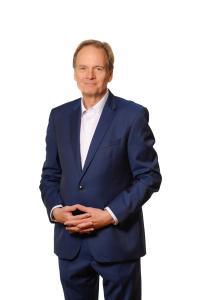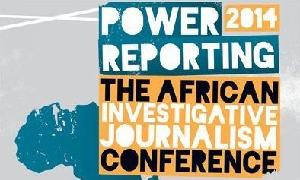Power Reporting 2014 in Johannesburg - Media Programme Sub-Saharan Africa
Event Reports
In lectures and workshops journalists from all around the world spoke about their investigations, the tools they utilized and the findings they made. The discoveries were diverse: Cases of corruption and misappropriation of state funds, the falsification of statistics and articles on illegal weapon deals reminded the participants why media are often called the “watchdogs of democracy“.
Jock McCulloch paved the way in his opening lecture, showing the audience at what health cost immigrants had worked in the mines of Apartheid South Africa and how this had been disguised through false statistics. Twenty years after the end of Apartheid and after several years of investigations he uncovered this deceit. While it is too late to save the lives that have already been lost, it is not yet too late to assign the responsibility for these offences.
The question of whether the investigations can be done the official way or whether the circumstances require unofficial means often is a difficult one. At the start of the second day, Daniel Öhman presented how he uncovered a weapons deal between the Swedish and the Saudi Arabian government. He persistently questioned the responsible parties until they gave themselves away. The audio recording of interviews without explicit permission is allowed under Swedish law in certain circumstances, especially when the use of the findings exceeds the personal harm.
But even if the state of legislation is a bit stricter than this, there remain possibilities to get access to information. Ron Nixon (New York Times), for instance, explained to the journalists how they can make formal access of governmental information requests and what rights they have in this regard. Nixon explained: „The first automatic reflex of all public authorities is to turn down these requests“. Consequently, one has to invest a lot of time. However, if a strong judicial system is in place, there are possibilities to claim these rights.
The „amaBhungane“-journalists of the South African weekly Mail&Guardian told the audience about their collaborative investigations into the so-called „Nkandla Affair“. The misappropriation of state funds for the expansion of Jacob Zuma’s private presidential palace is a topic that catches a lot of interest in the country. Accordingly, the classroom was full and the applause was long when the journalists finished elaborating on their persistent decipherment of state documents. While the case is still far from being off the table, the journalists made a significant contribution to the public debate on the scandal.
On the last day, KAS Media Africa held a roundtable discussion on journalism education. The specific needs of the media industry in Africa were discussed and it was evaluated, whether the educational institutions are able to live up to them at present. Especially a better understanding of the business and finance sector has become more and more important for journalists in the African context. More consultation between universities and the industry is also needed in order to sufficiently prepare the future journalists for the time after their studies. The discussion furthermore served as the opening event for the „Media Educators Workshop“held on 6 November 2014 on the premises of the Witwatersrand University.
Further workshops gave the participants the opportunity to improve their practical skills in a wide range of areas. In the context of the current Ebola epidemic and upcoming elections in several African countries, there was an exchange of experiences and tips on how to collect and work with data and maps. Another course on WEBDOCS taught the participating journalists advanced skills for their usage of videos and photos. The potentials of Social Media and their value for investigative journalism were also discussed.
What most participants will remember after this three-day long conference: They are not alone with their worries over uncooperative public officials, restrictive media laws and problems with data collection. As Ron Nixon emphasized, journalists should not always consider themselves as competitors but also sometimes cooperate when this brings the investigations forward.
Already Konrad Adenauer knew: „One has to be careful with little boys and journalists. They will always still throw one more stone“. At times, it can be very useful to be persistent.
Jenny Ohme was an intern at KAS Media Africa from October to November 2014









